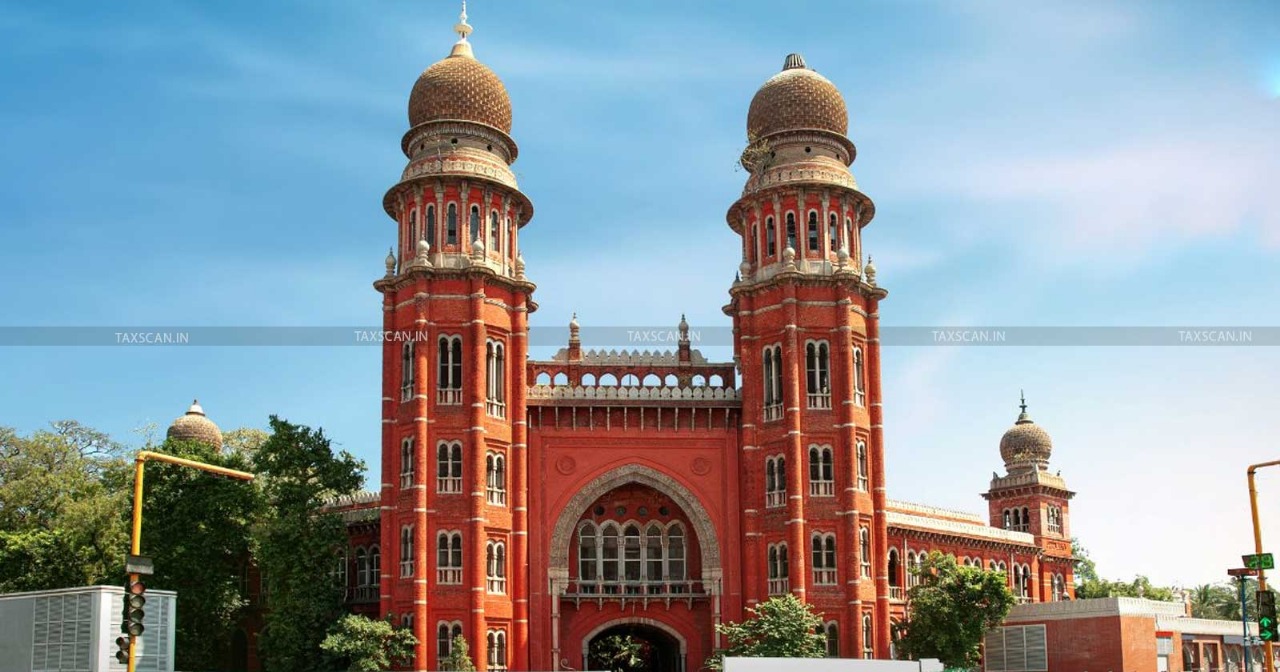2001 km Goods Transport Without E-Way Bill Part B: MP HC Upholds IGST Levy and Penalty [Read Order]
The court concluded that there was an admitted violation by the petitioner and agreed with the appellate authority’s view that the E-way bill was a statutory document essential for transportation.
![2001 km Goods Transport Without E-Way Bill Part B: MP HC Upholds IGST Levy and Penalty [Read Order] 2001 km Goods Transport Without E-Way Bill Part B: MP HC Upholds IGST Levy and Penalty [Read Order]](https://images.taxscan.in/h-upload/2025/08/02/2072345-e-way-bill-part-b-non-compliance-mp-high-court-igst-penalty-upheld-jpg.webp)
The High Court of Madhya Pradesh, upheld the levy of ₹3.58 lakh Integrated Goods and Services Tax ( IGST ) and an equal penalty on goods worth ₹19.18 lakh, after finding that the assessee transported PVC film over 2001 km without completing Part B of the E-Way bill.
Manish Packaging Private Limited,petitioner-assessee, was a company registered under the Companies Act, 1956 and engaged in manufacturing, selling, and exporting plastic films under Chapter 39 of the Customs Tariff, adopted for Goods and Service Tax ( GST ) purposes. It exported a consignment of PVC film to Nepal on 08.10.2018 under a GST tax invoice, without paying IGST.
Step by Step Guide of Preparing Company Balance Sheet and Profit & Loss Account Click Here
The consignment had a letter of credit and Part A of the e-way bill, but the driver could not produce Part B when the vehicle was stopped by the State Tax Officer, on 09.10.2018.
The officer issued GST MOV-06 and a notice, and the petitioner provided a bond and bank guarantee of ₹7.16 lakh for provisional release of the goods. On 17.10.2018, the officer imposed IGST of ₹3.58 lakh and an equal penalty. The petitioner’s appeal against this order was dismissed on 30.03.2022, leading to the present writ petition challenging the appellate order.
Justice Vivek Rusia and Justice Binod Kumar Dwivedi examined Section 129 of the Madhya Pradesh Goods and Services Tax Act, 2017, which dealt with detention and seizure of goods transported in violation of the Act or its rules. It noted that the section allowed release of goods on payment of tax and penalty or on furnishing security and further provided for proceedings under Section 130 if payment was not made within seven days.
practical case studies in forensic accounting & corporate fraud investigation Click here
The court also referred to Rule 138 of the MP GST Rules, amended on 07.03.2018, which required every registered person moving goods worth over ₹50,000 to furnish details in Part A of Form GST EWB-01 before movement and generate Part B for road transport.
 Also Read:GST Act Does Not Permit Duplicate Proceedings: Madras HC Permits to Include Differential Amount in Original Proceedings if Provision Allows [Read Order]
Also Read:GST Act Does Not Permit Duplicate Proceedings: Madras HC Permits to Include Differential Amount in Original Proceedings if Provision Allows [Read Order]
The bench observed that the petitioner had generated only Part A of the e-way bill on 08.10.2018, which clearly stated “Not Valid for Movement as Part B is not entered (2001 km).” It held that for a consignment valued at ₹19,18,887 and moving over 2000 km, Part B was mandatory, and its absence rendered the e-way bill invalid.
The court concluded that there was an admitted violation by the petitioner and agreed with the appellate authority’s view that the e-way bill was a statutory document essential for transportation. It found the impugned order dated 30.03.2022 proper and held that no interference was warranted. Accordingly, the writ petition, lacking merit, was dismissed.
Support our journalism by subscribing to Taxscanpremium. Follow us on Telegram for quick updates


